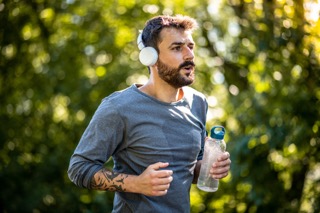When people think of drug rehabilitation, images of therapy sessions, support groups, detox, and tough internal battles often come to mind. While all of those are critical parts of the recovery process, there’s one element that is often overlooked but just as vital: rest.
Rest isn’t just about sleeping—though good sleep is crucial. It’s about allowing your mind, body, and spirit the time and space to heal. In a culture that praises productivity and constant motion, learning how to slow down and truly rest can be one of the hardest—but most powerful—skills a recovering person can develop.
1. The Body Needs Time to Rebuild
Drugs and alcohol take a toll on the body. They deplete nutrients, strain the organs, and disrupt sleep cycles. In early recovery, your body is working overtime to repair the damage.
Rest gives your body the chance to:
- Rebalance hormones
- Rebuild neurotransmitters like dopamine and serotonin
- Heal organs like the liver and brain
- Restore energy levels
Without proper rest, your body stays in a stressed, depleted state—and that can make cravings and emotional lows more intense.
2. Rest Helps Regulate Emotions
Addiction often blunts or distorts emotional responses. When drugs are removed, the emotional floodgates can open. You might feel everything at once: anger, sadness, shame, joy, anxiety.
Rest—whether it’s deep sleep, mindful downtime, or quiet alone time—helps your brain reset. Emotional regulation becomes more manageable. You’re better able to process your feelings, reflect clearly, and respond calmly instead of reacting impulsively.
3. Mental Clarity Comes with Stillness
The brain of someone in recovery is doing a lot: it’s relearning how to make decisions, handle stress, and find motivation without the influence of substances. That’s exhausting.
Taking breaks, practicing mindfulness, or even engaging in gentle, restful activities like journaling or nature walks helps sharpen mental clarity. Over time, you’ll notice that you can think more clearly, remember things better, and focus longer—all of which are essential in staying sober and rebuilding your life.
4. Rest Reduces the Risk of Relapse
Fatigue is one of the most common relapse triggers. When you're tired—physically or emotionally—your defenses are lower. It becomes easier to justify "just one drink" or "one hit."
A well-rested person has more resilience. They’re more equipped to say no, reach out for help, and make choices that align with their recovery goals.
5. Rest Isn’t Laziness—It’s Medicine
Many people feel guilty for resting, especially in early recovery. They might feel they need to make up for lost time or prove their worth. But here’s the truth: rest is not laziness—it’s medicine.
It’s how you rebuild your strength, stay mentally and emotionally grounded, and give yourself the care you truly deserve.
Recovery Is a Marathon, Not a Sprint
You didn’t get here overnight, and healing won’t happen overnight either. Resting isn’t about doing nothing. It’s an active part of your recovery journey.
So don’t be afraid to:
- Take a nap
- Meditate
- Take breaks between therapy sessions
- Spend time alone when needed
- Say no to overstimulation
The more you rest, the more you heal. And the more you heal, the more powerful your recovery becomes.
You’re not just surviving this process—you’re building a new life. Rest is the foundation.
If you or someone you love is struggling with addiction, don’t wait. Reach out to a licensed rehab center or helpline.
The road to recovery may be tough, but every step is worth it.
Have your own tips or experiences with recovery? Share them in the comments below!
Let’s support each other.
If you need additional help with recovery, visit us in person or contact us at Hope Haven Recovery.





.webp)
.webp)